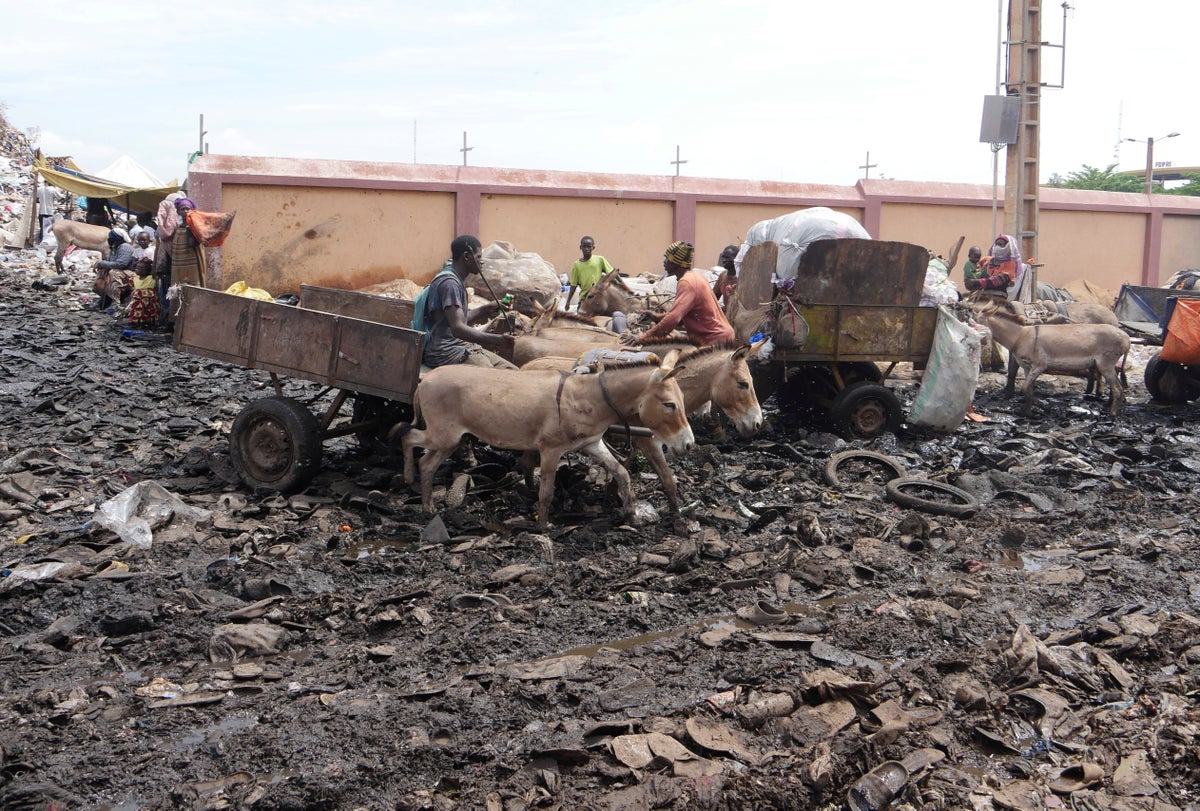
Support truly
independent journalism
When handling the garbage of a city of over 3 million people and equipped with little more than a face mask and gloves, it helps to have a sense of humor. Yacouba Diallo decided to name the two donkeys that pull his cart after his cousins, Keita and Kanté.
Hauling garbage in Mali's capital, Bamako, can be otherwise grim. The city more than doubled its population in recent years and struggles to manage its waste. Piles of garbage dominate some streets.
Residents are turning to donkey carts like Diallo's for trash pickup. The carts can weave in and out of vehicle traffic and reach more places than trucks can, especially on bad roads.
In addition, "it requires less investment than a truck,” Diallo said.
He said he can make up to $166 a month. That kind of money is attractive to youth who come from Mali's rural areas seeking employment in the West African nation with high unemployment.
Some in Mali are concerned about the donkeys they use. Advocacy groups allege that some of the animals are overburdened, work long days and have little protection from walking on broken glass around dump sites. Amadou Doumbia with the SPANA nonprofit campaigns for the donkeys to be replaced with trucks.
But conditions are tough all around. Ideally, the garbage collected from Bamako's streets is meant to be deposited in a transfer site and then taken to a landfill. But the city doesn't have sites that meet required standards, said Bamadou Sidibé, a waste management consultant.
“All the institutions that have to deal with the waste problem are not playing their part,” he said.
The World Bank in 2022 approved $250 million to help rehabilitate a landfill outside Bamako to international standards and build a second one in the city. The project has been set up by the government and the World Bank and is due to last until 2028, but no date has been given for the start of construction.
Local authorities acknowledge the city has a waste disposal problem. But they blame residents.
“Bamako is dirty because people don’t care about the environment or their health,” asserted Adama Kanté, a deputy mayor. He said residents aren't willing to pay for waste disposal.
Some residents agree and point out that there's no penalty for simply tossing their garbage into the street.
“Instead of hiring a garbage collector who has to be paid, a lot of people wait until the rainy season to throw their garbage into the running water. It costs less,” said one resident, Boureima Traoré.
Until solutions are put in place, the garbage mounds in Bamako have attracted some residents who risk their health and safety searching through them for items to reuse or sell.
It's a common scene in some African capitals and one that can turn deadly: Earlier this month, a vast landfill in Uganda's capital collapsed, killing at least 30 people.
___
For more news on Africa and development: https://apnews.com/hub/africa-pulse







